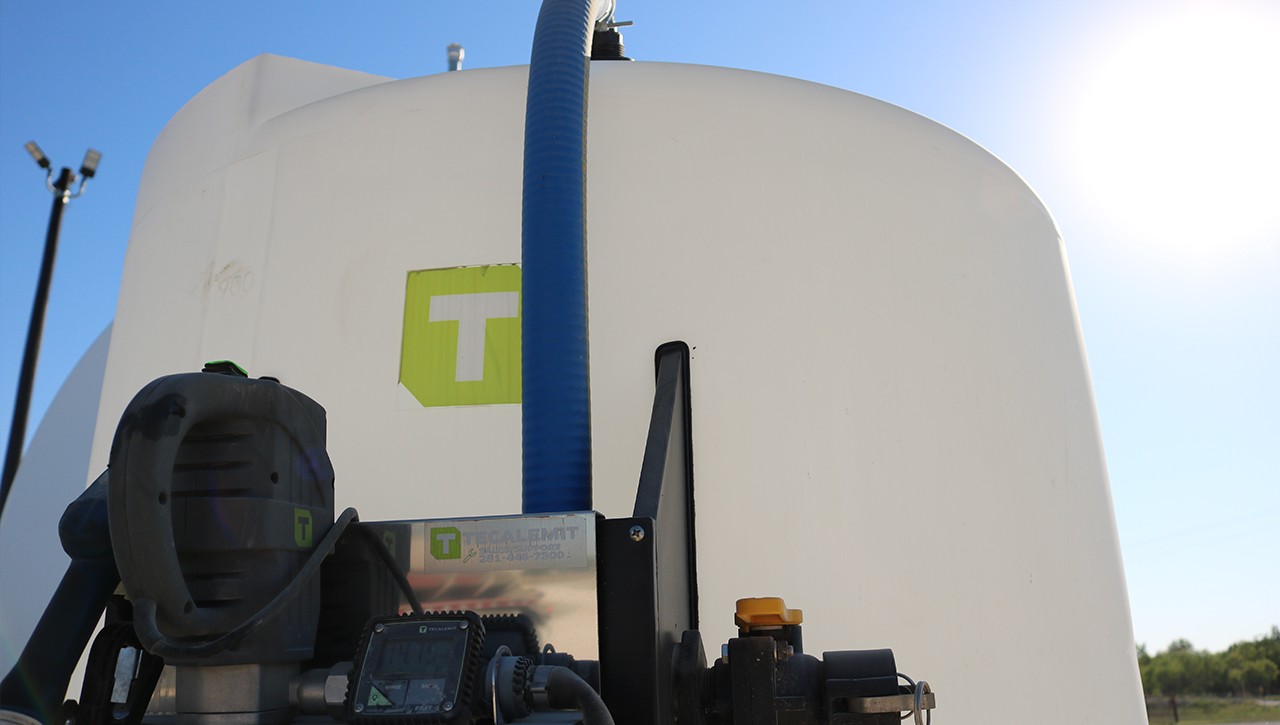Fuel is key for any business that operates fleets of equipment. From a waste company with hundreds of trucks to a trucking fleet with only a handful. Fuel means power, and it’s a necessity. Fuel often makes up over 10% of a company’s total budget. But few fleet managers or owners know the details behind their fleet’s usage. And with high prices and economic uncertainty, it’s important to find ways to save on cost.
A fuel management system (FMS) does that, and this is what makes them so beneficial. They help businesses understand and manage their fuel usage. And this saves them money and time. But the benefits don’t stop with just fuel. There is also equipment to help manage diesel exhaust fluid (DEF) usage. Helping diesel users two-fold. Here are 4 benefits a fuel management system could offer your fleet:
Fuel is a major expense for companies that use diesel or gasoline. And companies using diesel have the added cost of DEF as well. That’s why it is important to understand your fleet’s fuel usage so you can find ways to save. Imagine how much money you could be losing due to wasteful fuel use. And how it could be impacting your bottom line. This is the most important benefit a fuel management system offers. By tracking fuel or DEF usage businesses can better understand their consumption. And knowledge is power. Fleet managers can now identify which vehicles are using more fuel. A drop in MPG could mean a vehicle has poor engine performance or needs maintenance. It could also mean certain drivers are idling for long periods. Fleet Managers can now better control their fuel costs. An FMS also helps you better plan your fuel use. Which allows you to buy highway diesel or other products in bulk. Leading to cost savings, especially for large fleets.
Another way to save on fuel costs is to prevent theft. Given the cost of gasoline and diesel, fuel theft is on the rise. A quick google search shows stories from all over the country. In fact, back in June of 2022 AAA issued a warning to all drivers about the risk of thieves puncturing fuel tanks. And commercial fleet vehicles aren’t safe from fuel theft. Odds are your equipment has been a target before. While an FMS isn’t needed to detect a punctured fuel tank, they can alert you to other forms such as siphoning fuel. This is common for equipment that is on a job site overnight. An FMS not only helps detect fuel theft, but it can also help prevent it as well. Users must present a pin to pump fuel, which eliminates the unauthorized use of your fuel tank.
2022 is behind us and we're into the new year. It’s time to start thinking about how our operations can be more efficient. But the economy in 2023 will force businesses to be more creative about finding new ways. And there aren’t always easy ways to be more productive. Fuel management systems are an easy way to be more efficient. Not only do they reduce expenses, but they also help you do more with the resources you have. Sometimes the best way to help your bottom line is to be more productive.
An FMS allows you to do that. As trucks get fuel the FMS collects data points that are available in real-time. If you don’t need to see this every day, FMS software can email you a summary of last month’s usage. Either way, the data collected by the FMS allows you to find areas that may need improvement. This helps you find more fuel-efficient routes and improve vehicle performance. By making these changes, you increase the efficiency of your fleet. Imagine what saving a few hundred gallons of fuel each month would do for your bottom line. Or how many more customers you could serve.
Being safe is the most important thing we do. And I’m sure your business is no different. You owe it to your employees, customers, and the community you serve. You may not expect it, but a fuel management system can help your company be safer. And who could say no to that. By tracking fuel usage and engine hours you can install better maintenance practices. An FMS can also detect safety issues. Including problems with engine performance, or fuel leaks. Keeping these problems from happening while trucks are on the road. And helping to lower maintenance cost.
Having at job site fuel tank or an above ground fuel tank at your yard is a luxury. It means you have fuel when you need it, always available for your fleet. But a bulk fuel tank also comes with a lot of responsibility. What safeguards are in place to prevent or detect a spill? And what procedures do you have in place should a spill occur? An FMS is setup to prevent this type of issue and help your site and your employees be safer. An FMS can alert you to issues with tanks at you site. Weather it is a slow leak seeping into the ground unnoticed or a nozzle dripping fuel. The constant monitoring of the fuel or DEF tanks also ensures your fleet is never idle because of an empty tank.
We already discussed how an FMS deters and prevents fuel theft. But fuel theft also occurs when employees are stealing from their own company. And these tend to be small amounts that are hard to notice. After all, someone doesn’t need a hundred gallons of fuel for personal use. They only need a few gallons a week. But the dollar amount can add up. How easy is it for you prevent or detect this type of theft today? An FMS provides extra security when it comes to preventing employee fuel theft. In our experience, employees know their fuel usage is being tracked. Meaning they know they are being held accountable. This reduces the likelihood they will attempt to steal fuel. In the case an employee does try stealing, an FMS helps detect this activity. The information on usage by vehicle and driver can help identify suspicious trends. Red flags might be a transaction size greater than the vehicle’s fuel tank or a drop in a vehicle’s efficiency. This helps you act. Resulting in more accountability and better control of your fuel.
Now more than ever, businesses must also be good members of the community. Companies are being asked to lower emissions and explain how they plan to do it. An FMS helps you to understand fleet performance so you can then find ways to reduce usage. If you use less fuel, you have lower emissions. You can now spot opportunities by looking at the refueling frequency per vehicle. Which lead to changes that lower emissions.

A fuel management system is a great investment for those that rely on fuel. They help businesses save money and be more efficient. A fuel management system also helps fleets be safer and reduce emissions. With the right FMS in place, you get the most out of your fuel budget, and ensure your fleet is safe. Which means they pay for themselves in no time.
At Bear Oil we have years of experience when it comes to working with Fuel Management Systems. We partner with industry leaders like as Tecalemit and Piusi. We also take time to understand what customers need so we can get them the right system. We have worked with customers that have many locations and hundreds of vehicles. There is no job too small or too large and complex.
Request a Free Consultation with a FMS Expert Today!
 Hunter Grona, CPA
Hunter Grona, CPA
Hunter focuses on delivering insight into topics such as analytics, technology, and economics, in the Energy & Fuel Industries. He holds a M.S. in Financial Management, B.B.A. in Accounting, and Minor in Economics from Texas A&M University. Prior to working at Bear Oil, Hunter began his career at ExxonMobil where he focused on Mergers & Acquisitions and Financial Reporting & Analysis. Visit his LinkedIn | Email
When you subscribe to the blog, we will send you an e-mail when there are new updates on the site so you wouldn't miss them.